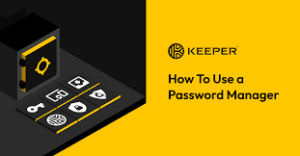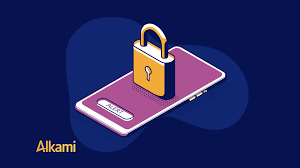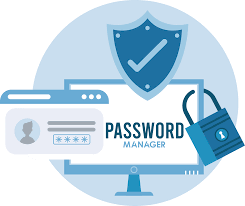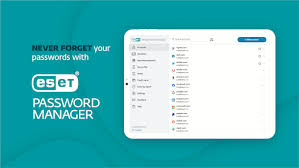At nearly every cybersecurity meeting, seminar, and discussion group, one question looms large: Is your password strong enough?
Research has revealed a troubling truth: many passwords fail to protect our digital lives. Think of passwords as the keys to your kingdom; they guard your identity, sensitive data, and personal information. A single phrase or word can grant access to everything you hold dear.

Once a fraudster identifies your username—often just your email address—their next target is your password. A quick scan of your social media accounts can provide them with vital clues. Your pet’s name, your mother’s maiden name, or even your favourite vacation spot may be public knowledge, and if any of these are tied to your passwords or security questions, you become an easy target.
Fraudsters are patient hunters, willing to invest time and effort if they believe the reward is worth it. The simpler your password, the quicker they can unlock the door to your virtual world. In an age where our lives are increasingly online, ensuring that your passwords are robust is no longer optional; it’s essential for safeguarding everything you cherish.
In 2019, a startling revelation emerged from CNN research: the five most common passwords were shockingly simplistic. They were as follows:
1. 123456
2. 123456789
3. Qwerty
4. Password
5. 111111
These passwords may seem harmless, but they are anything but secure. In fact, using any of these is like leaving your front door wide open, inviting trouble.
Creating strong passwords is essential to safeguarding not just your accounts but also the sensitive information of your friends and contacts. When it comes to cybersecurity, the responsibility extends beyond oneself; it encompasses the safety of those within your digital circle.

Fraudsters often exploit this vulnerability. Once they gain access to your contact list, they can unleash a barrage of phishing emails or malware-laden messages. Imagine the chaos that could ensue if one of your friends clicks on a link and unknowingly compromises their data.
So, how can you fortify your defences? A strong password is key, comprising a mix of uppercase and lowercase letters, numbers, and symbols. Remember, the longer and more complex your password, the harder it becomes for attackers to crack it. Prioritise security—your peace of mind and the safety of your contacts depend on it.
In today’s digital age, where our lives are intertwined with technology, safeguarding our online accounts has never been more crucial. Consumer Reports offers some valuable insights to help you fortify your digital presence.

First and foremost, consider crafting a longer, more intricate password. Instead of the standard combinations of letters and numbers, think about a memorable phrase that holds personal significance. For instance, something whimsical like “Mydogdigs4rubberbones!” not only adds complexity but also makes it easier for you to recall.
Next, resist the temptation to recycle passwords across different platforms. Using the same password for multiple accounts can create serious vulnerabilities; if one account is compromised, all others become at risk. A password manager app can be a lifesaver here, securely storing unique passwords for each of your accounts.
Implementing two-factor authentication (2FA) is another decisive step in securing your accounts. This method requires you to enter a code sent to your smartphone, adding an extra layer of protection that makes unauthorised access much more difficult.

Lastly, exercise caution regarding what you share on social media. Oversharing personal information can inadvertently provide clues to potential hackers. Limit your posts to a trusted circle, ensuring that your online presence remains safe and secure. By following these tips, you can navigate the digital landscape with greater confidence and peace of mind.
In an age where digital security is paramount, a new trend is emerging: the use of “passphrases” instead of traditional passwords. Imagine a phrase formed from a random assortment of four or more short words that only you can decipher. For instance, think of “piano-blueberry-sunshine-rocket.” While it may sound whimsical, it serves as a formidable barrier against cyber intruders.
The beauty of passphrases lies in their randomness. Unlike conventional passwords, which can often be guessed or cracked with relative ease, these word combinations are much more complex to predict. They don’t follow a logical sentence structure and are unique to each user, making them significantly more secure.

Consider this: protecting your personal information is just as crucial as locking your front door every night. By creating hurdles for potential fraudsters, you increase the chances they will seek easier targets elsewhere.
Knowledge and awareness act as powerful shields in the ongoing battle against cybercrime. To fortify your defences further, explore Regions’ Fraud Prevention Resources for practical tips and insights. Your digital safety is worth the effort—arm yourself with the right strategies today.
In an age where digital security is paramount, a new trend is emerging: the use of “passphrases” instead of traditional passwords. Imagine a phrase formed from a random assortment of four or more short words that only you can decipher. For instance, think of “piano-blueberry-sunshine-rocket.” While it may sound whimsical, it serves as a formidable barrier against cyber intruders.
The beauty of passphrases lies in their randomness. Unlike conventional passwords, which can often be guessed or cracked with relative ease, these word combinations are much more complex to predict. They don’t follow a logical sentence structure and are unique to each user, making them significantly more secure.

Consider this: protecting your personal information is just as crucial as locking your front door every night. By creating hurdles for potential fraudsters, you increase the chances they will seek easier targets elsewhere.
Secure browsing
When it comes to staying safe online, using a secure and private browser is crucial. Such a browser can help protect your personal information and keep you safe from cyber threats. One option that offers these features is the Maxthon Browser, which is available for free. It comes with built-in Adblock and anti-tracking software to enhance your browsing privacy.

Maxthon Browser is dedicated to providing a secure and private browsing experience for its users. With a strong focus on privacy and security, Maxthon employs strict measures to safeguard user data and online activities from potential threats. The browser utilises advanced encryption protocols to ensure that user information remains protected during internet sessions.
In addition, Maxthon implements features such as ad blockers, anti-tracking tools, and incognito mode to enhance the level of privacy for its users. By blocking unwanted ads and preventing tracking, the browser helps maintain a secure environment for online activities. Furthermore, the incognito mode enables users to browse the web without leaving any trace of their history or activity on the device.
Maxthon’s commitment to prioritising the privacy and security of its users is exemplified through regular updates and security enhancements. These updates are designed to address emerging vulnerabilities and ensure that the browser maintains its reputation as a safe and reliable option for those seeking a private browsing experience. Overall, Maxthon Browser offers a comprehensive set of tools and features aimed at delivering a secure and private browsing experience.
Maxthon Browser, a free web browser, offers users a secure and private browsing experience with its built-in Adblock and anti-tracking software. These features help to protect users from intrusive ads and prevent websites from tracking their online activities. The browser’s Adblock functionality blocks annoying pop-ups and banners, allowing for an uninterrupted browsing session. Additionally, the anti-tracking software safeguards user privacy by preventing websites from collecting personal data without consent.
By utilising Maxthon Browser, users can browse the internet confidently, knowing that their online activities are shielded from prying eyes. The integrated security features alleviate concerns about potential privacy breaches and ensure a safer browsing environment. Furthermore, the browser’s user-friendly interface makes it easy for individuals to customise their privacy settings according to their preferences.
Maxthon Browser not only delivers a seamless browsing experience but also prioritises the privacy and security of its users through its efficient ad-blocking and anti-tracking capabilities. With these protective measures in place, users can enjoy the internet while feeling reassured about their online privacy.
In addition, the desktop version of Maxthon Browser works seamlessly with their VPN, providing an extra layer of security. By using this browser, you can minimise the risk of encountering online threats and enjoy a safer internet experience. With its combination of security features, Maxthon Browser aims to provide users with peace of mind while they browse.
Maxthon Browser stands out as a reliable choice for users who prioritise privacy and security. With its robust encryption measures and extensive privacy settings, it offers a secure browsing experience that gives peace of mind to its users. The browser’s commitment to protecting user data and preventing unauthorised access sets it apart in the competitive market of web browsers.
By choosing Maxthon Browser, users can feel confident that their online activities are safeguarded from potential threats and invasions of privacy. In an age where digital security is more important than ever, opting for a browser like Maxthon is a proactive step towards ensuring a safer online experience. Embrace the reassurance of secure browsing with Maxthon Browser today!
